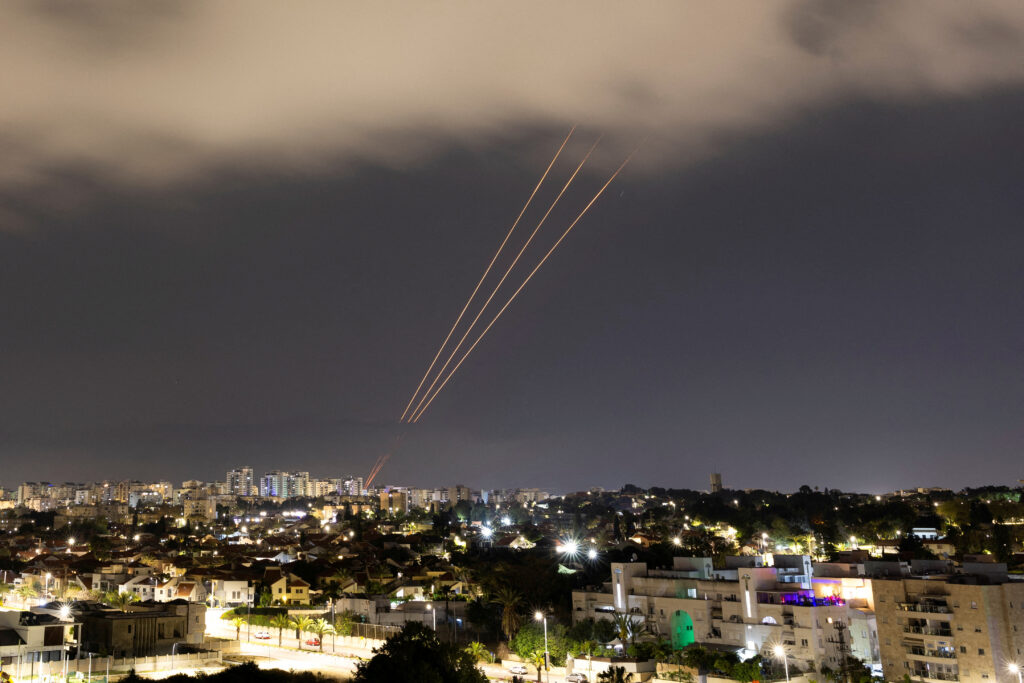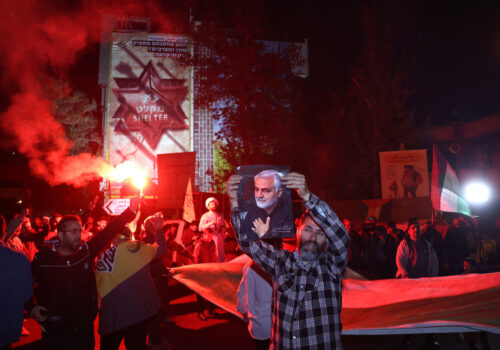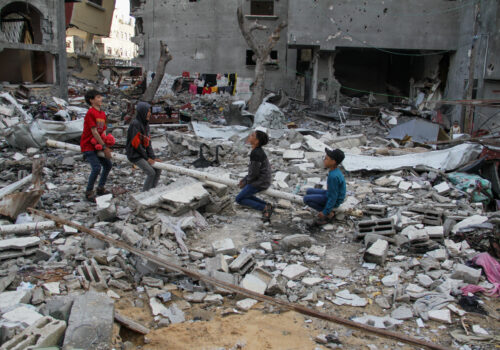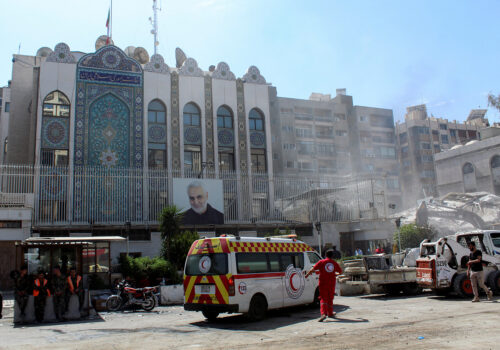JUST IN
The skies lit up over Jerusalem. Overnight, Iran launched more than two hundred drones and missiles, each shuttling its destructive potential through the dark sky toward Israel. Israeli, US, and other allied forces intercepted most of the Iranian blitz, with only minor damage reported on an Israeli military base. But the unprecedented direct Iranian attack against Israel—a response to Israel’s recent killing of top Iranian Islamic Revolutionary Guard Corps officials in Syria—has ignited new fears of a regional war. Below, our experts peer through the smoke and into the tinderbox.
TODAY’S EXPERT REACTION BROUGHT TO YOU BY
Jonathan Panikoff (@jpanikoff): Director of the Scowcroft Middle East Security Initiative at the Atlantic Council’s Middle East Program and former US deputy national intelligence officer for the Near East
Daniel E. Mouton: Nonresident senior fellow at the Scowcroft Middle East Security Initiative and former director for defense and political-military policy for the Middle East and North Africa on the National Security Council
Gina Abercrombie-Winstanley: Nonresident senior fellow at the Scowcroft Middle East Security Initiative, thirty-year US diplomat, and former special assistant for the Middle East and Africa to the secretary of state
Out of the shadows
- This is the first time Iran has launched a direct attack on Israel, notes Jonathan. And in doing so, he adds, “it shatters the previous conflict threshold in the long-running war between Israel and Iran, bringing it out of the shadows and into the light.”
- The big question now is how Iran and Israel assess the success of the strike. Iran needs to feel that “it has sufficiently responded” to Israel’s attack, but not be “overly successful” to the point where Israel would need to respond, Dan explains.
- The size and nature of the response, Gina tells us, means that “Iranian honor has been satisfied.” At the same time, “the physical damage done to Israeli targets so far has been minimal. The next step does not have to be escalation.”
The response
- It is true that Iran’s attack “puts the region on the precipice of a broader war,” explains Jonathan. But it is a war “that almost no one seems to actually want,” he adds. The United States, Arab states, and even Hezbollah have sought to avoid wider conflict over the last six months.
- So what will Israel do now? The best case, Jonathan tells us, is an Israeli counterstrike “probably in Iran” that “will be specific and contained and won’t lead to another significant Iranian response. This reaction appears possible because of the very minimal impact that Iran’s strikes actually had.”
- “But regardless of the shape of any Israeli retaliation,” Jonathan adds, it is now clear that “this is the beginning of a new era.”
- Dan notes that the United States has increased its force posture in the area as an “insurance policy” for Israel during its campaign in Gaza. “Israel feels it must act while it enjoys a strong US force presence,” he says. “Thus, the weekend’s attack will not be the end.”
The political fallout
- Gina notes that US President Joe “Biden’s position has worsened considerably” as he works to contain both a regional war and domestic political fallout from the Middle East crisis in an election year.
- Meanwhile, Gina argues, Israeli Prime Minister Benjamin Netanyahu benefits from the fact that “Gaza has retreated from the conversation” as a result of the Iranian attack, the United States has reaffirmed its “rock-solid support” for Israel even at the risk of a regional war, and “he may have reunified Israelis again in the face of danger, which will help keep him in power.”
Further reading
Sat, Apr 13, 2024
Experts react: Iran just unleashed a major attack on Israel. What’s next?
New Atlanticist By
What will Israel do next? Has a wider regional war begun? What role will the United States play? Our experts weigh in below.
Fri, Apr 12, 2024
Dispatch from Gaza: ‘My son, every night he screams and convulses’
MENASource By Arwa Damon
Arwa Damon arrived in the Gaza Strip on a humanitarian mission for her charity, INARA, two days after the Israeli airstrike on the World Central Kitchen convoy. This is what she saw.
Wed, Apr 10, 2024
Why attention must refocus on Iran
Inflection Points Today By Frederick Kempe
The most effective way to address Iran’s regional ambitions is to return as quickly as possible to the path of normalization between Israel and modernizing Arab states.
Image: An anti-missile system operates after Iran launched drones and missiles towards Israel, as seen from Ashkelon, Israel April 14, 2024. REUTERS/Amir Cohen



